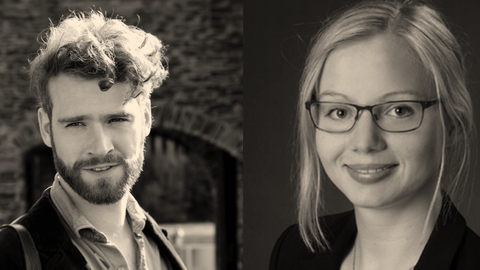10.12.2021
Ein Leitfaden zur genderinklusiven Kommunikation – überfällig oder überflüssig? – eine Perspektive aus der Linguistik
Beitrag von Dominik Hetjens und Marlene Rummel, wiss. Mitarbeiter und wiss. Mitarbeiterin an der Professur für germanistische Linguistik und Sprachgeschichte
Die TU Dresden gibt sich einen Leitfaden zur genderinklusiven Kommunikation und wagt sich damit in ein Territorium, das in öffentlichen Debatten gerade heiß umkämpft ist. Wir wollen uns an einer Einordnung aus linguistischer Perspektive versuchen, die sich von manchen anderen Sichtweisen unterscheidet: Während sprachlicher Wandel in der Gesellschaft oft misstrauisch betrachtet wird (bis hin zu einer befürchteten „Zerstörung“), verfolgt die Linguistik ihn grundsätzlich zunächst mit neutralem Interesse.
Trotzdem sind die Positionen auch in der Linguistik nicht gleichförmig; eine Übersicht haben wir kürzlich an anderer Stelle veröffentlicht. Dort, wo aber größere empirische Studien angefertigt werden, scheint sich ein gewisser Trend abzuzeichnen: Verschiedene Experimente legen nahe, dass das „generische“ Maskulinum, die maskuline Pluralform, auch tendenziell zunächst Assoziationen von männlichen Personen hervorruft; wenn wir „Ärzte“ sagen, denken Zuhörende eher an Männer. So geben auch Schülerinnen an, sich weniger für bestimmte Berufe zu interessieren, wenn man nach diesen Berufen im Maskulinum fragt (im Vergleich zu Beidnennung von Femininum und Maskulinum). Aus einer solchen Perspektive ist also eben nicht gleichermaßen „jeder mitgemeint“, wie es oft heißt. Während diese Befunde selten vollständig in Zweifel gezogen werden, herrscht Uneinigkeit über die Größe ihres Einflusses sowie darüber, wie mit ihnen umzugehen ist. Innerhalb wie außerhalb der Linguistik gibt es Diskussionen über verschiedene Formen und Varianten: Welche Folgen hat die Verwendung von Genderstern, Doppelpunkt, Beidnennung, geschlechtsneutralen Bezeichnungen oder „generischem“ Maskulinum für Verständlichkeit und Repräsentation verschiedener Geschlechter? Und nicht zuletzt: Welche Formen treffen auf gesellschaftliche Akzeptanz, die nötig ist, um sie langfristig zu etablieren?
Die TUD legt nun einen Leitfaden vor, der in der Frage nach den passenden Formulierungen eine gewisse Sicherheit bietet, zugleich aber die Unabgeschlossenheit der Debatten berücksichtigt. Für all jene, die eine Richtlinie suchen, enthält er ausreichend Hinweise für Formulierungen, wobei er non-binäre Personen zu inkludieren sucht und sich um Barrierefreiheit bemüht. Damit möchte er „Brücken schaffen“, wie es das Leitbild der Universität nennt; schließlich erzeugt Sprache Realität und kann zur Ausgrenzung sozialer Gruppen beitragen. Ob sich eine der genannten Formulierungen gesellschaftlich durchsetzen wird und welche von ihnen das sein wird, insbesondere ob der Doppelpunkt als Gendervariante im Sinne der Barrierefreiheit langfristig Bestand haben wird, muss derzeit offenbleiben, was der Leitfaden ebenfalls anerkennt. Er wird also in Zukunft Erneuerungen brauchen, um sich veränderten sprachlichen Realitäten anzupassen, was für Texte dieser Art typisch ist.
Einem Missverständnis möchten wir an dieser Stelle vorbeugen: Der Leitfaden wurde in einem partizipativen Prozess an der TU Dresden erarbeitet und gibt Hinweise und Leitlinien zur Kommunikation für Menschen, wenn sie genau diese Institution vertreten. Er soll nicht dazu zwingen, sich in der Debatte um das Gendern auf der einen oder anderen Seite zu positionieren, sondern gibt die Möglichkeit, im Sinne der Institution zu formulieren. Er zielt nicht darauf ab, den privaten oder kollegialen Sprachgebrauch zu kontrollieren, „Sprechverbote“ zu erteilen oder Noten für genderinklusives Schreiben zu etablieren. Der Leitfaden könnte in dieser Hinsicht expliziter sein, leistet aber aus unserer Sicht dennoch einen begrüßenswerten Beitrag zur spannenden öffentliche Debatte darüber, wie wir mit der Diversität unserer Gesellschaft und deren sprachlicher Repräsentation umgehen wollen. Dabei im Spannungsfeld zwischen sprachlicher Kreativität und notwendigem normativen Halt den optimalen Mittelweg zu finden, wird sicher Gegenstand einiger zukünftiger Leitfäden sein.

